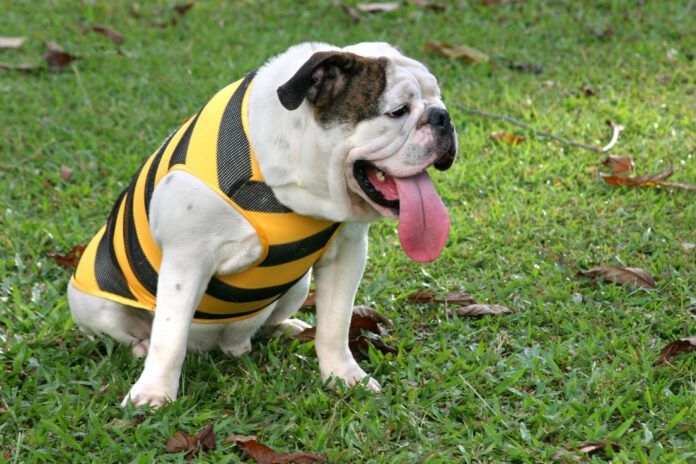The short answer to how hot is too hot for dogs is, it depends, but if you think it’s hot your dog thinks it’s hot.
Right away, let’s be clear about things that are too hot for dogs: There is no excuse for leaving your dog in a locked car on a hot day. A car, with all its windows up, in 70°F weather heats up to 100° in 25 minutes, according to the National Weather Service. That’s too hot for any dog. So, if the temperature is, or is going to be, more than 70 degrees, leave your dog at home.
Dogs, unlike humans, can only sweat through their pads (feet). They cool down almost exclusively by panting, or exchanging heat with their environment, which is not efficient. So, when the ambient or surrounding temperature is overly hot, dogs have difficulty cooling themselves. A dog’s tongue will lengthen and widen in an attempt to maximize its cooling capability.
That means that the temperature dogs can endure also depends on the humidity, because they can’t exchange heat as well if it’s humid. Outside, a dog in the deserts of California or Nevada (where the humidity is less than 10% on hot summer afternoons) can withstand a higher temperature than a dog in Virginia or New Jersey (where the humidity is 90% or higher in the summer).
A dogs’ comfort in heat also depends on other factors: their breed (brachycephalic breeds like Pugs, Bulldogs, and Boxers, as well as northern breeds with thick coats, like Malamutes, do far less well in heat), age, obesity, lack of shade or water, fitness, and type of exercise are important. But, just as with humans, it also depends on the individual.
A dog’s normal body temperature is 101 to 102.5°. If their body temperature exceeds 105°, and they aren’t otherwise sick, they are suffering from potentially fatal heatstroke, which can cause lethargy, their gums to turn bright red, excessive panting, and even vomiting or diarrhea.
What should you do if your dog gets too hot? First, move him somewhere cooler, like to shade or an air-conditioned room or the car AC. If available, put him in a cool pool or tub of water or hose him with cool—not icy cold—water, focusing on his groin area, feet, and neck (you can wet his entire coat if you want, but most of that water will just roll off). Offer frequent sips of water. If he still doesn’t cool down, he needs to go to the veterinarian.
A good guide is, “If you think it’s hot, it’s too hot for your dog.”






